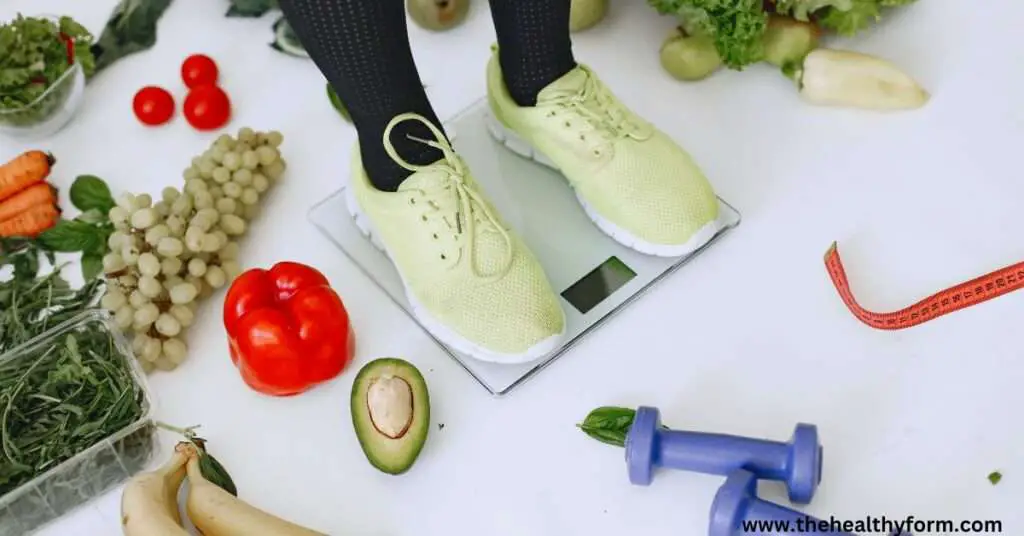Healthy Weight Loss Tips for a Fitter You
Looking to lose weight? Our guide to the best exercises for weight loss tips has you covered. From high-intensity interval to strength training, we’ve rounded up the most effective workouts for shedding pounds and getting in shape.
Discover the best exercises to add to your fitness routine and get on track to reaching your weight loss goals. Weight loss can be challenging, but with the right strategies and support, it is possible to make lasting changes that improve overall health and well-being. Here is a comprehensive blog on weight loss, including tips, strategies, and resources to help you achieve your goals.
Losing weight can be a challenging and complex process. It involves changing your diet, physical activity levels, and lifestyle habits to reduce the number of calories you consume and increase the number of calories you burn. Weight loss can have many benefits, including improved health, increased energy levels, and self-esteem. However, it is important to approach weight loss healthily and sustainably, as rapid or extreme weight loss can negatively affect the body.

What Are the Best Weight Loss Tips?
There are many strategies and approaches to weight loss, and what works best depends on your individual needs and goals. Some general weight loss tips that may be helpful for weight loss include:
- Eat a balanced diet: Consume various foods, including fruits and vegetables, whole grains, lean proteins, and healthy fats.
- Incorporate physical activity: Regular physical activity can help increase the calories you burn and support weight loss. Aim for at least 150 minutes of moderate or 75 minutes of vigorous-intensity activity per week.
- Monitor portion sizes: Paying attention to portions can help ensure you consume the right calories for your needs.
- Drink plenty of water: Staying hydrated is important for overall health, and it can also help to reduce feelings of hunger and promote weight loss.
- Get enough sleep: Adequate sleep is important for overall health and may affect weight regulation. Aim for 7-9 hours of sleep per night.
What Are the Best Weight Loss Foods?
There is no one “best” weight loss food, as the key is to focus on overall diet quality rather than specific foods. However, certain foods may be particularly helpful for weight loss due to their high fiber, protein, or healthy fat content. Some examples of weight loss-friendly foods include:
- Fruits and vegetables are high in fiber and nutrients and can help fill you up without adding many calories.
- Lean proteins: Protein can help to increase feelings of fullness and support muscle mass, which is important for weight loss. Good lean protein sources include chicken, fish, tofu, and beans.
- Whole grains are higher in fiber and nutrients than refined grains, which can help keep you full and satisfied.
- Healthy fats: Fats are an important part of a healthy diet, and certain types of fats, such as monounsaturated and polyunsaturated fats, can support weight loss. Good sources of healthy fats include nuts, seeds, and avocados.
There is no “best” way to lose weight; the most effective approach depends on your needs and goals. However, some general strategies may be helpful for weight loss:

What Is the Best Way to Lose Weight?
- Seek support: Losing weight can be a challenging process, and having the support of friends, family, or a healthcare provider can be helpful. Consider joining a support group or working with a dietitian or other healthcare professional to develop a weight loss plan.
Set realistic goals: It is important to set realistic goals for weight loss, as trying to lose weight too quickly can be unsustainable and may negatively affect the body. A healthy weight loss rate is typically 1-2 pounds per week.
- Monitor progress: Regularly tracking your weight and other metrics, such as waist circumference and body fat percentage, can help you monitor your progress and make any necessary adjustments to your weight loss plan.
- Be consistent: Consistency is key in weight loss, as making small, sustainable changes to your diet and lifestyle over time can be more effective than trying to make extreme changes all at once.
What Are the Best Exercises for Weight Loss?
Exercise can be an important part of a weight loss plan, as it can help to increase the number of calories you burn and support weight loss. Some of the best exercises for weight loss include:
- Cardio: Cardio activities, such as walking, running, cycling, and swimming, can help to increase the number of calories you burn and improve cardiovascular health.
- Strength training: Strength training exercises, such as lifting weights or using resistance bands, can help to build and maintain muscle mass, which is important for weight loss.
- HIIT: High-intensity interval training (HIIT) involves short bursts of intense activity followed by rest periods. HIIT can be an effective way to boost metabolism and burn calories.
- Yoga: Yoga can help to improve flexibility, balance, and strength, and it can also be a good way to relax and de-stress.

What Are the Best Weight Loss Supplements?
No one “best” weight loss supplement will work for everyone, and it is important to be cautious when using supplements for weight loss. Some supplements may be helpful for certain people under certain circumstances, but they are not a substitute for a healthy diet and regular physical activity. Speaking with a healthcare provider before starting any supplement regimen is always a good idea.
What Are the Best Weight Loss Programs?
Many weight loss programs are available; the best depends on your needs and goals. Some programs focus on diet and nutrition, while others may involve exercise, behavioral therapy, or a combination of these approaches. It is important to carefully consider the potential risks and benefits of any weight loss program before committing to it and to work with a healthcare provider or registered dietitian to develop the right plan.
FAQ about Weight Loss Tips
Here are some of the most common questions people have about weight loss Tips are:
What is the best way to lose weight?
There is no one-size-fits-all answer to this question, as weight loss is highly individualized. However, creating a calorie deficit by reducing your calorie intake and increasing your physical activity level is a proven effective method for weight loss.
How many calories should I eat to lose weight?
This will vary depending on age, gender, weight, height, and activity level. A safe and sustainable weight loss goal is typically 1-2 pounds per week, which can be achieved by creating a calorie deficit of 500-1000 calories daily.
Do I need to exercise to lose weight?
While exercise is unnecessary for weight loss, it can help create a calorie deficit and improve overall health. Strength training can also help build muscle mass and increase metabolism, aiding in weight loss efforts.
What are some healthy foods for weight loss?
Foods high in fiber, protein, and water content are generally good for weight loss as they can help keep you full for longer periods. Examples include fruits, vegetables, whole grains, lean proteins, and legumes.
Can I lose weight without counting calories?
Yes, it is possible to lose weight without counting calories by making healthy food choices and being mindful of portion sizes. However, tracking your food intake can be a helpful tool for creating a calorie deficit and monitoring progress.
Is it healthy to lose weight quickly?
Rapid weight loss can be unsafe and is not typically sustainable. Aiming for a weight loss of 1-2 pounds per week is generally recommended for safe and sustainable results.
What are some common weight loss myths?
Some common weight loss myths include that cutting out entire food groups is necessary for weight loss, all calories equal, and that supplements or fad diets can provide quick and long-term results.
Is it possible to lose weight without giving up my favorite foods?
Yes, losing weight while still enjoying your favorite foods in moderation is possible. Incorporating them into a balanced diet and monitoring portion sizes can help you achieve your weight loss goals.
Conclusion
Losing weight can be challenging and complex, but with the right strategies and support, it is possible to make lasting changes that improve overall health and well-being. Focusing on a balanced diet, regular physical activity, and consistent lifestyle habits can set you up for success on your weight loss journey. Remember to seek support, set realistic goals, and be mindful of any potential risks or concerns regarding weight loss.






